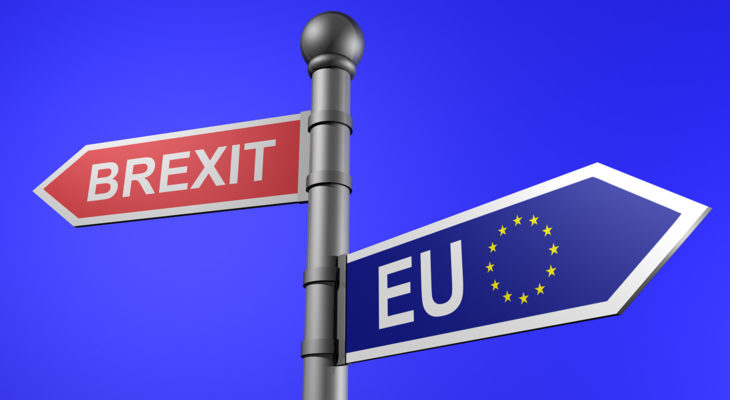
After Brexit – Who’s Next?
Other European Member States Eye the European Union Exit
This week attention has been primarily focused on the British people’s vote to leave the European Union last Thursday and the impact that it has had on the British Pound and global financial and precious metals markets. The Brexit vote has also has stirred nascent and well established Eurosceptic movements across European Member States. The uncertainty engendered by the Brexit vote will be compounded if other member states also decide to hold referendum to leave the European Union.
Britain Goes First
The United Kingdom was the first member state ever to vote to leave the European Union. While it will take some time to extricate itself from the European Union, the British first step of leaving the EU has energized populist/nationalist movements across European member states whose citizens may wish to follow the British example. Calls for reform and/or tighter integration have been made to prevent a cascade of member state copy cat in/out British style referendum from being called for and held.
There are at least ten European Member States with significant Eurosceptic sentiments. If another European Union member state, especially a founding member state and/or one that uses the Euro as its currency, were to hold an in/out referendum that resulted in an out vote, the concept of the European Union and its viability would be called into further question.
An Ipos Mori poll taken in March and April before the Brexit vote showed substantial sentiment for in/out referendum across many European Union Member States. A poll taken in mid-June by the Netherlands Der Telegraf showed that 88% of people in the Netherlands wanted a referendum on European Union membership.
Here is an overview of three European Union Member states, two of which are founding member states, that polled the highest in the Ipos Mori poll on whether to hold a referendum to leave the European Union.
Italy
Joined: 1957 (Founding member state)
Currency: Euro
March/April 2016 Ipos Mori Poll Sentiment: 58% want a referendum/48% would vote to leave.
Italy is the fourth largest economy in the European Union (behind Germany, France and the United Kingdom) with a population approximately the same as the United Kingdom. Italy is geographically situated at the heart of the European continent. Much of Europe’s history and culture emanates from the Italian peninsula.
Italy’s populist Five Star Movement is a Eurosceptic party a growing political force in Italy that recently one 19/20 mayoral races.
A loss of Italy in the European Union might mean the end of the European Union as it would represent not only a founding member of the EU but one that also uses the Euro, the currency of the EU. An Italian Exit would create turmoil in the European monetary system as The European Central Bank’s monetary policy is heavily interconnected with Italy. For example, the ECB’s current quantitative easing policy involves buying Italian Government bonds denominated in Euros. Great Britain’s vote to leave the EU did not have direct monetary union implications as Great Britain never joined the EU’s monetary union and continues to use the British Pound.
France
Joined 1957 (Founding member state)
Currency: Euro
March/April 2016 Ipos Mori Poll Sentiment: 55% want a referendum/43% would vote to leave
France has the second largest population of any member state (behind Germany) and is the third largest economy (behind Germany and the United Kingdom) in the European Union. France, like Italy is geographically situated at the heart of the European continent with Mediterranean and Atlantic Ocean ports. French culture and history predominates and defines much of European culture and history.
France’s National Front is a Eurosceptic party with a substantial following. Its leader Marine Le Pen is against the European Union and a potential Presidential candidate in 2017. Ms. Le Pen has vowed to hold a French referendum.
The loss of founding member France would cause chaos among the remaining European Union member states and their economies.
Sweden
Joined: 1995
Currency: Swedish Krona
March/April 2016 Ipos Mori Poll Sentiment: 55% want a referendum/43% would vote to leave.
Sweden is a relative newcomer to the European Union, having joined in 1995. Sweden has not adopted the Euro as its currency and still uses the Swedish Krona. While Sweden’s population is just under ten million, it is the seventh largest economy in the European Union and home to corporate giants, Volvo, Ericsson and Ikea. The loss of Sweden, perhaps could be absorbed, but the spark created by another European state opting to leave may ignite a a flurry of in/out referendum across European Member states.
The foregoing three European Union member states all had significant percentages of their populations favoring a referendum in March and April of 2016 . Those percentages have probably grown since the Brexit vote was held in June .
There are also significant Eurosceptic movements in the Belgium, the Netherlands, Denmark, Poland, Germany, Spain and Hungary. The uncertainty of a British Exit from the European Union.
The best chance the European Union has to stop copy cat referendum across Europe would be for economic disaster to strike England, thereby taking the allure of going it alone from the other member states. Absent that, it is likely we will see more member states calling for and holding referendum to leave the European Union. With those votes, the global markets will continue to experience uncertainty and economic turmoil.
This article by BGASC is not, and should not be regarded as, investment advice or as a recommendation regarding any particular course of action.
